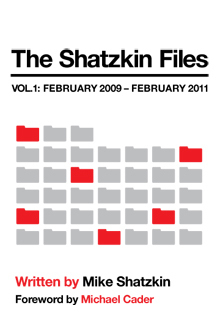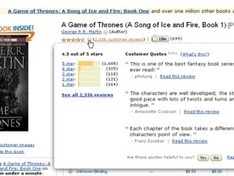This is an excerpt from a Mike Shatzkin article published in 2009 and entitled: "Aggregation and curation: two concepts that explain a lot about digital change."
If you are into curation, aggregation or into understanding why traditional publishers, record labels and newspapers are struggling so much in this digital era to keep their traditional services and products sustainable, you will likely find some eye-opening answers and explanation in here.
Here the key takeaways I have found inside it:
"Aggregation is one of the core concepts of content presentation and commercialization.
Any analysis of what happened to the record business, what is happening to newspapers, or the future of books and bookstores and magazines and TV that does not feature this concept prominently is almost certainly flawed.
Aggregation, of course, simply means pulling together things which are not necessarily connected.
Curation is a term that has always referred to the careful selection and pruning of aggregates, such as for a museum or an art exhibition.
But the concept in the digital content world means the selection and presentation of these disparate items to help a browser or consumer navigate and select from them.
Aggregation without curation is, normally, not very helful."
The music album, the CD, the newspaper.
"...one thing has been common to all of them and to all other newspapers: they cover the waterfront. (I have called that being “horizontal.”) They aggregate news of the world, the nation, and the city with sports, weather, stock quotes, advice to the lovelorn, and many other things.
They sell almost all their advertising against the aggregate and against the brand, not against any specific item or interest being aggregated.
And the competition for each paper is against other curated aggregates.
Newspapers sold the curated aggregate to people who didn’t want most of it because the total price was a good deal for the parts they did want, just like the album was a good deal even if you only liked some of the songs. And now they are suffering precisely the same fate as the record album.
The unit of appreciation is smaller than the [aggregated] whole.
...
So the long story short on newspapers is this: a business model of selling a horizontal (many-subject) aggregate, curated by something other than subject, was based on the economics of a physical world where aggregation produced efficiencies of production and distribution.
The Internet changed that.
It is no longer necessary for an aggregator to provide news to deliver me sports, or to provide a whole newspaper to deliver me the weather or a stock quote.
The importance of curation becomes more prominent.
...the more horizontal is the collection, the less likely it is to work in the digital world."
Must read. 9/10
Full article: http://www.idealog.com/blog/aggregation-and-curation-two-concepts-that-explain-a-lot-about-digital-change
(Unearthed by Peter Hoeve - Curated by Robin Good)


 Your new post is loading...
Your new post is loading...
 Your new post is loading...
Your new post is loading...












I really like the idea, the publishing business needs more of this!
Edit your own book?